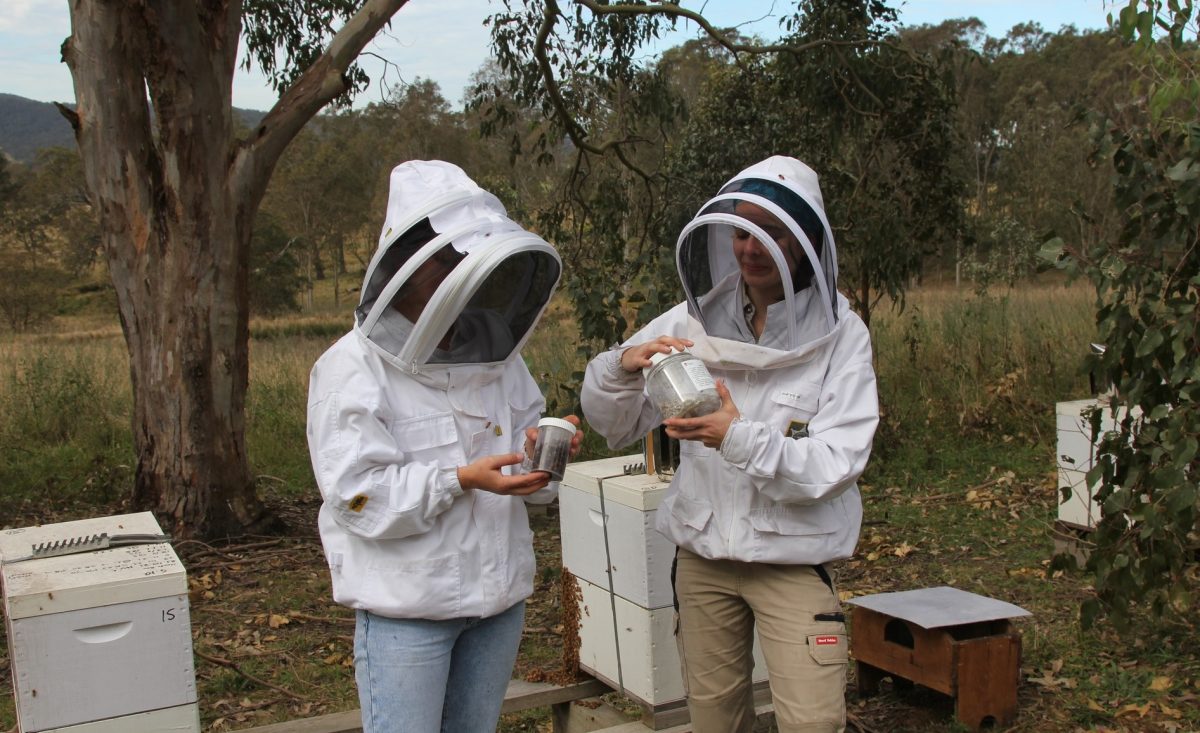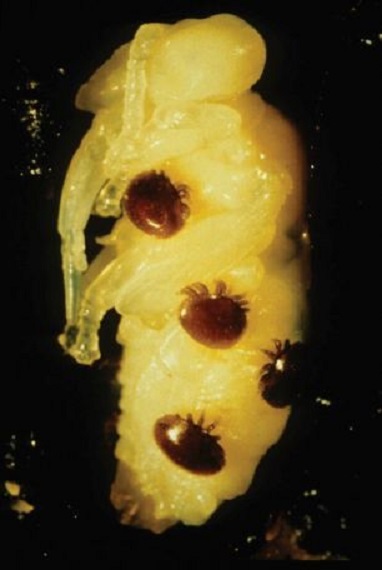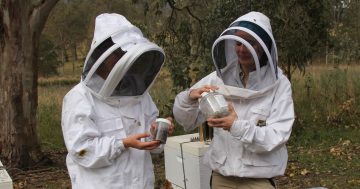
A new transition to management plan will be rolled out to help control the spread of varroa mite. Photo: NSW DPI.
A new transition to management plan is set to be rolled out to control and slow the spread of the devastating varroa mite across the bee industry.
Federal, State and Territory governments have backed the Varroa Mite National Management Group’s move to a new phase of biosecurity management and specialist staff will be dispatched to work with the industry to ensure beekeepers understand how to best manage the pest.
Australian Honey Bee Industry Council chief executive Danny Le Feuvre said he was excited to finally see the plan move forward.
“It has been a long time in the making and we are really happy that we’ve been able to finally get agreement to the plan and that enables our industry to now get on with managing the new pest,” he said.
“The plan will see varroa development officers employed nationally to help drive on-the-ground support for beekeepers dealing with this pest for the first time, which will be welcomed by all I am sure.”
Varroa mite was first detected in surveillance hives at the Port of Newcastle in June 2022 and more than 14,000 hives were euthanised over the following four months as authorities tried to halt the spread.
The new plan will see response costs capped at $100 million and recruitment is underway for varroa development officers (VDOs) to work directly with beekeepers over the next 24 months.
“Back in September, the National Management Group decided that it was technically no longer feasible to achieve eradication, so the decision was made to transition towards management,” Mr Le Feuvre explained.
“More than 70 per cent of the resources for the transition and management plans focused on the education and extension components, so that’s really focused on giving beekeepers as much opportunity as possible to gain the training that they need to be able to manage the response and be comfortable with their plans moving forward.”

The varroa mite attacks both drone and worker honey bees. Photo: NSW DPI.
The NSW Government confirmed that training modules are set to be rolled out and the next step will be to organise industry events, and workshops, and to make materials available online.
The VDOs will also work to develop a network of volunteer beekeepers who will monitor hives for the presence of varroa and provide information on the spread of the mite.
NSW Minister for Agriculture, Tara Moriarty, said the focus would be on minimising the impact on beekeepers and pollination reliant agriculture.
“We will work closely with the industry at this critical time and deliver programs that enhance the health and robustness of NSW’s beekeeping industry,” she said.
“Australia is the last major honey producing country in the world to get varroa mite, and we are using international experience and science in understanding how best to prepare beekeepers and the beekeeping and pollination reliant industries.”
More than 65 per cent of horticultural and agricultural crops produced in Australia require honey bees for pollination and Australia currently benefits from a large wild bee population.
The impact of varroa mite in the United States and Europe has seen a decline of 95-100 per cent of wild honey bees within three to four years and it’s expected that Australia will now follow suit.
Tim Jackson from the Almond Board of Australia said it was an important period of change for Australia’s agriculture industry.
“Pollination reliant industries have a large stake in the transition to management as well as beekeepers,” he said.
“Experience from around the world shows that pollination reliant industries will need to work very closely with beekeepers to mitigate problems caused by the varroa mite’s impact on wild European honeybee populations.”
You can get the latest information on varroa mite through the NSW Department of Primary Industries.








